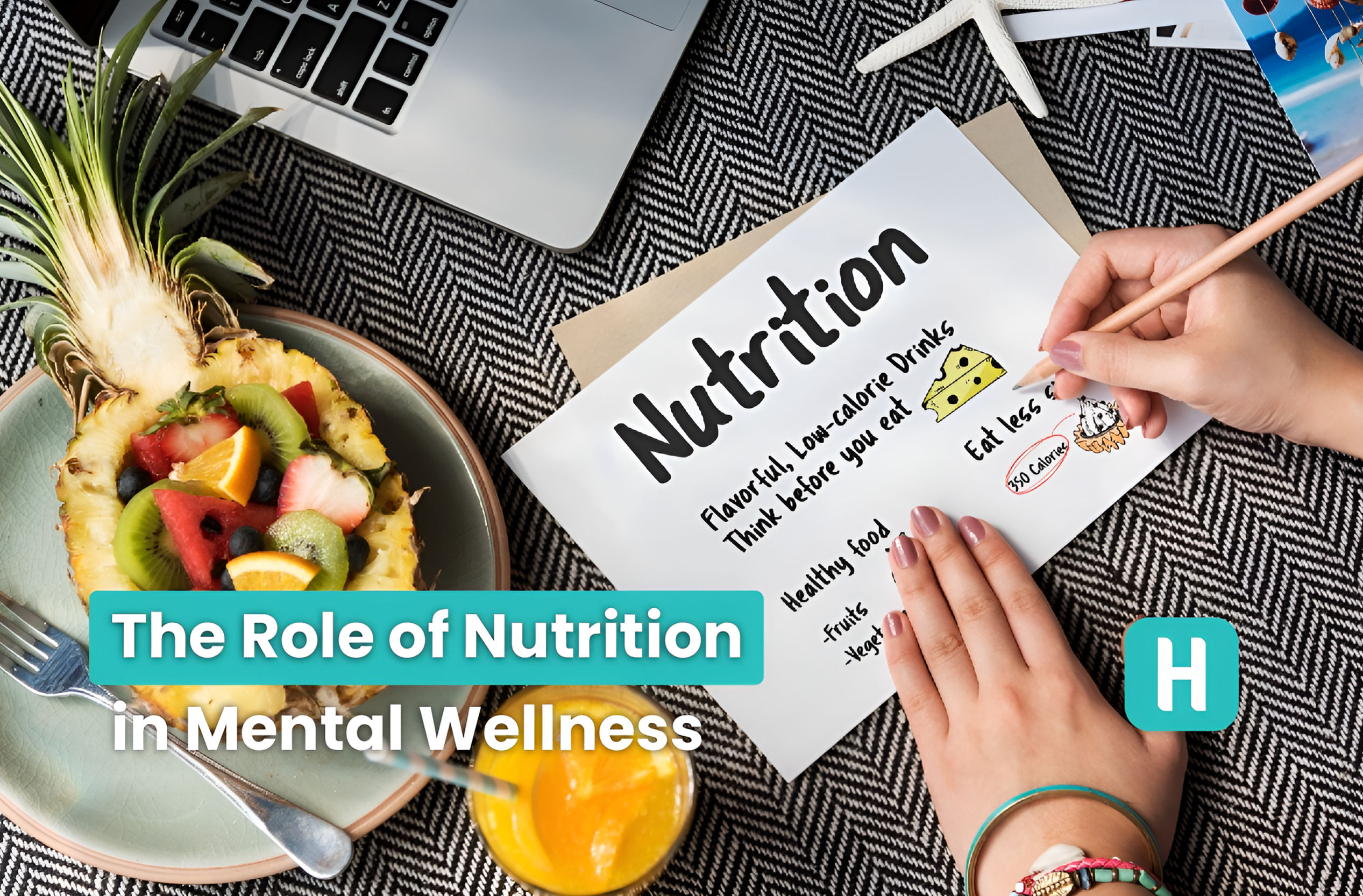Mental wellness isn’t just therapy, medication, or exercise. But it’s much simpler than what you put on the plate. Food works as fuel for our body, and because of that, we feel focused, energized, and emotionally fit and balanced after waking up every day. It is also called a powerhouse because it drives our brains. The nutrients we eat affect our mood and how we feel, think, and fight stress.
Fighting with depression and anxiety to improve focus and memory the connection is powerful mental wellness. So, how does your diet exactly shape your mental wellness? In this guide, you will see how the nutrients work to unlock the door to healthier mental wellness.
It is always wise to understand the importance of nutrition for our living bodies. It will help in making better choices of things that we put into our bodies-it will aid our body’s physical health as well as our mental state. Having a balanced diet with fruits and vegetables is the way to get the supposed nutrients. A good choice makes a healthy mind and body. The diet should, therefore, be the most nutritious as possible.
“Nutrition is not just about eating; it’s about learning to live”

Nutrition is another vital factor that helps keep our mental health in check. Poor nutrition brings about an increased risk of depression and other mental health problems. Good nutrition, on the other hand, protects people from such conditions and even alleviates existing mental health problems.
There might be those kinds of foods that can change our mood, thought process, or behavioral patterns negatively or positively. We should be conscious about the fact that which food we eat and its implications on our mental health aspects. A balanced diet rich in fruits, vegetables, grains, healthy fats, minerals, and vitamins works as fuel for your mental wellness.
Nutrients That Support Mental Health
Nutrition is key to mental wellness because it directly affects mental wellness. Here are some key nutrition benefits:
1. Omega 3 fatty acids
- Obtained from fatty fish such as salmon, mackerel, and sardines.
- Walnuts and flax seeds are good sources.
- Omega-3 fatty acids reduce inflammation and help with brain function.
- Two symptoms are depression and anxiety.
2. Vitamin B
- This group includes B6, B9, or folate and B12.
- They promote the synthesis of serotonin and dopamine.
- This is a neurotransmitter that controls mood Includes green leafy vegetables, nuts, corn, and fruit.
3. Magnesium
- Helps calm the nervous system and relieve stress in the body.
- Nuts and seeds are a good source.
- The same goes for green leafy vegetables and whole grains.
4. Vitamin D
- A deficiency in this vitamin is linked to depression and mood disorders.
- Exposure to sunlight and food, Including fortified dairy products and mushrooms.
- Fatty fish will help maintain the diet.
5. Antioxidants (Vitamin C and E)
- These substances protect against oxidative stress in the brain and support normal cognitive function.
- They are abundant in fruits such as berries and citrus, and vegetables such as bell peppers and spinach.
6. Probiotics
- A healthy gut means mental health.
- Probiotic-rich foods include yogurt, kefir, sauerkraut, and kimchi to provide support through the gut-brain axis.
- Adjust the balance of intestinal flora and maintain overall health.
7. Protein (Amino Acids)
- This comprises necessary amino acids from protein-rich foods like meat, fish, beans, and nuts,
- Serving as building blocks for neurotransmitters related to mood and clarity of mentality.
8. Complex carbohydrates
- Including whole grains, vegetables and fruits,
- Provide continuous glucose to the brain.
- It helps to concentrate and have better energy.
Nutrients can be added to the overall diet, which helps support the mind.
Conclusion
The true saying, “You are what you consume” is exactly about how to feel mentally. The nutrition we eat affects our mood, thinking, and fighting depression and anxiety. With the introduction of critical nutrients such as choline, magnesium, and iron, we can ultimately enhance our brain health, stress resistance, and mental acuteness. The new field of nutritional psychiatry emphasizes that choosing nutrient-rich foods enhances the betterment of mental wellness. A healthy diet gives fuel to the body and nourishes a healthier, happier mind, unlocking the path to mental wellness through every dietary choice.
“Feed your mind, fuel your soul; nutrition is the key to a balanced life”
FAQs
How does nutrition affect mental wellness?
Nutrition provides the brain with essential nutrients that help improve mood, focus, and overall mental health.
Can bad nutrition cause mental health problems?
Yes, poor nutrition can increase the risk of anxiety and depression.
Why is Vitamin D important?
Vitamin D helps regulate mood, and a lack of it can lead to feelings of sadness or depression.


